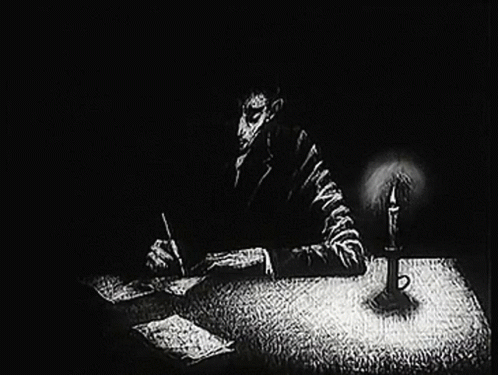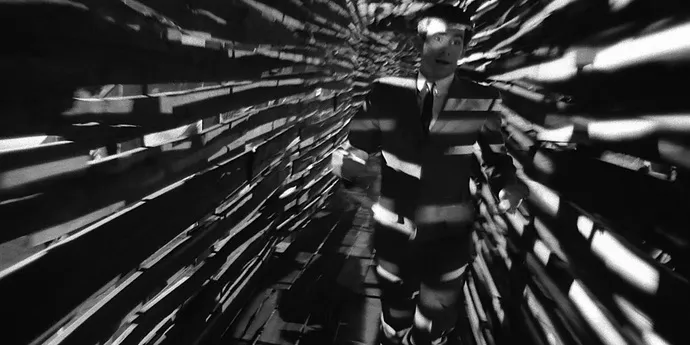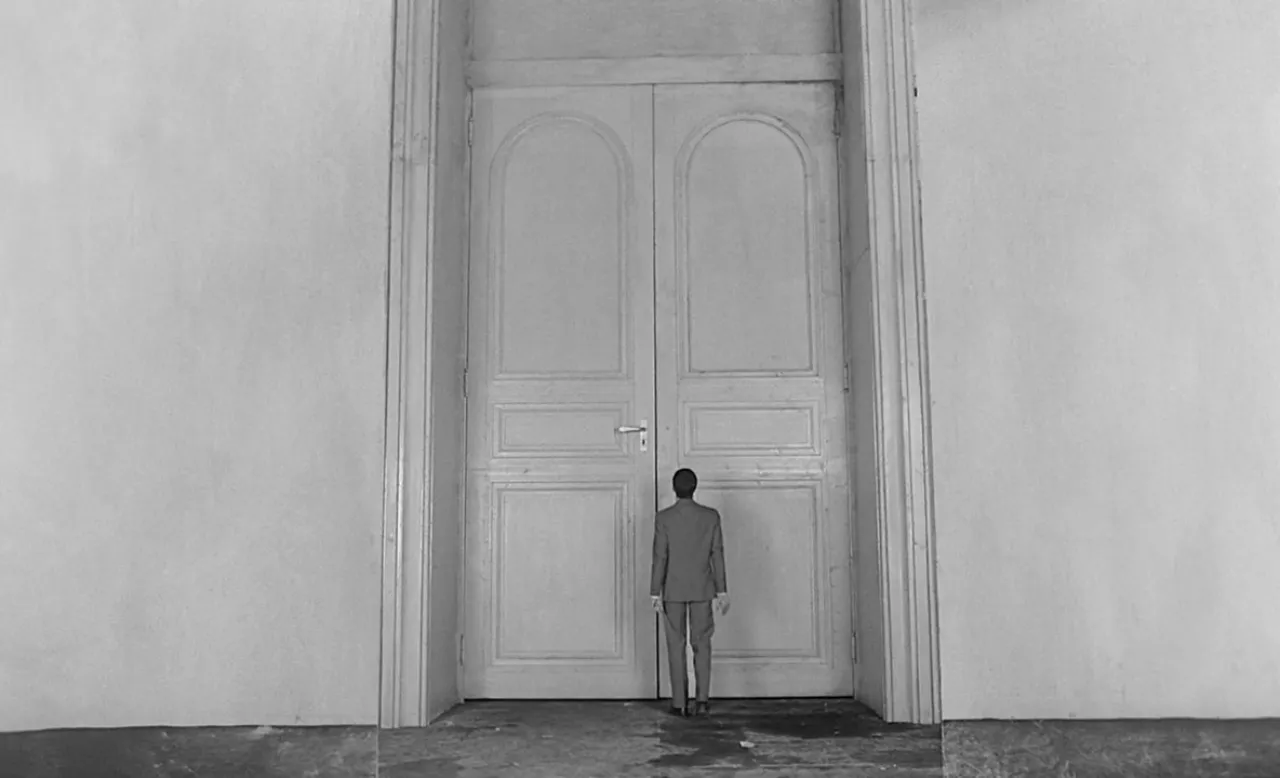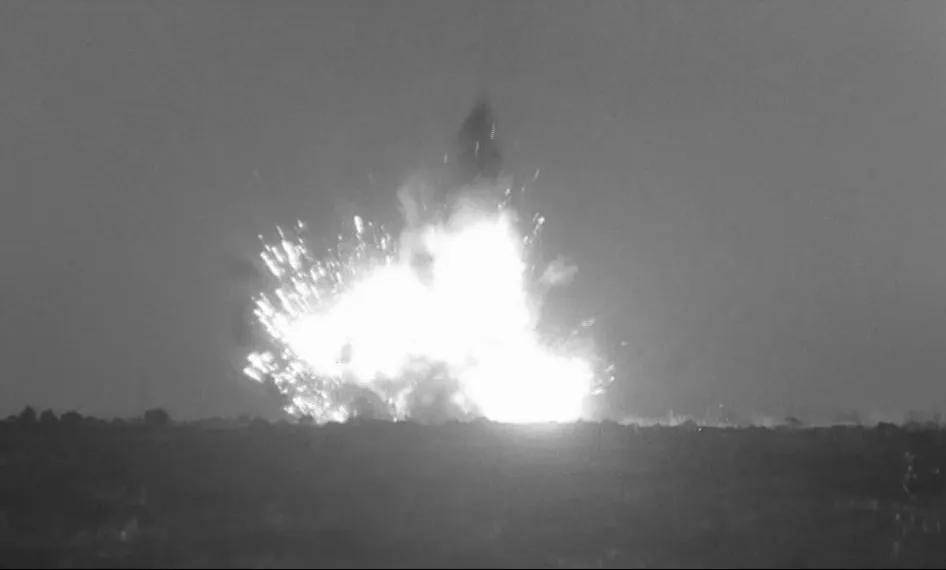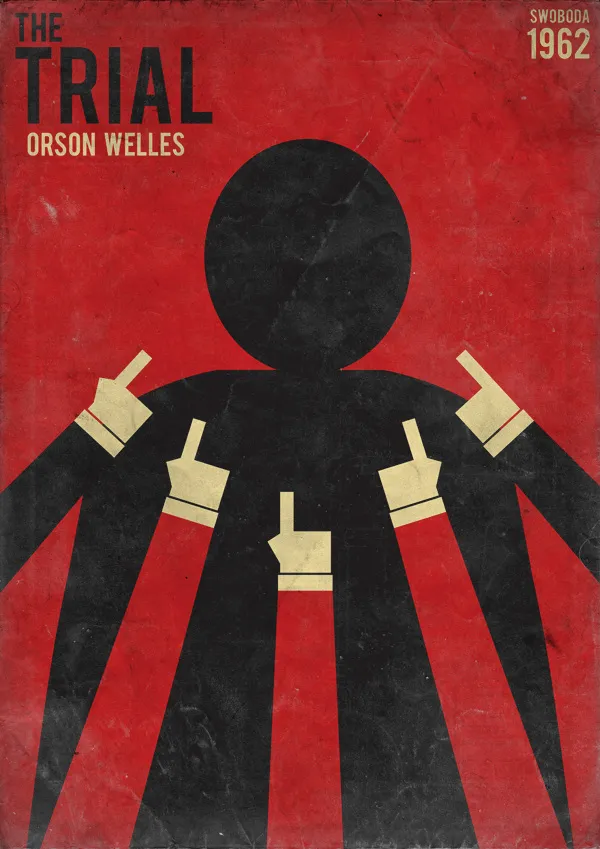
Before the law stands a gatekeeper. A man from the country asks for permission to pass the gate. The gatekeeper denies his request for the present time. So the countryman takes courage and waits in front of the gate. Years pass by, the countryman tries with bribing or other means to get the chance for entering the law, but the gatekeeper refuses him, accepting though the bribery, so that "the countryman doesn't believe later that he hasn't done enough". The countryman gets older and before his death asks the gatekeeper why hasn't anyone else come to this gate to enter the law. Then, the gatekeeper replies to him:
"No one else could ever be admitted here, since this gate was made only for you. I am now going to shut it."
source

Justice is blind. That's what we are told. Lady Justice doesn't care for the riches, the status or the power that one has (or has not), so that her verdict to be fair. But getting to justice is sometimes very difficult. Like all processes in modern human society, justice has become a quagmire that you can hardly find the end of.
Most likely if you have read "The Trial" by Franz Kafka, you will recognize the above story as the "Before the Law" that is included in the said book.
(If you have not read it, I urge you to do so, to enjoy one of the most intelligent writers of the 20th century).
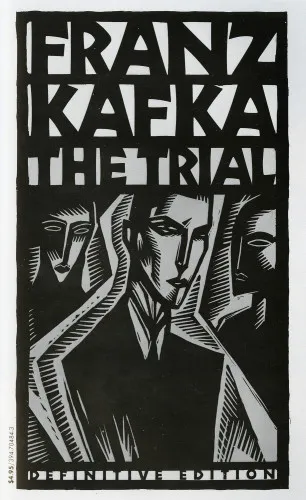
source
In short, the summary of the book is as follows:
Our hero, Joseph K. is accused but does not know the accusation. Two men -of undetermined status- invade in his room at night and inform him that he is in an "open" arrest, but without telling him why. Joseph K. sees his life changing radically. From the moment he is "arrested" the attitude of the people around him changes. His landlady, his neighbor, his boss all assume he did something and thus he was arrested.
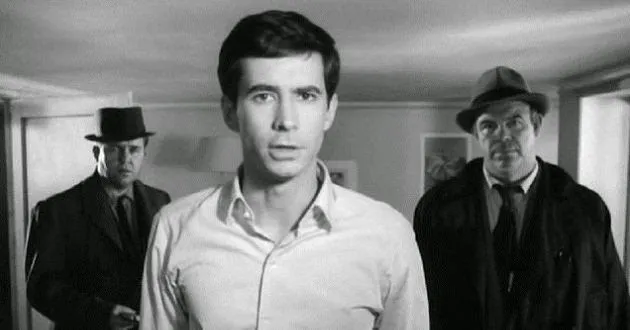
source
And when asked by the court to defend himself, trying to find his right, he gets lost in a court justice system between court clerks, lawyers, mistresses, court painters. Joseph K. struggles with the system that eventually swallows us all.
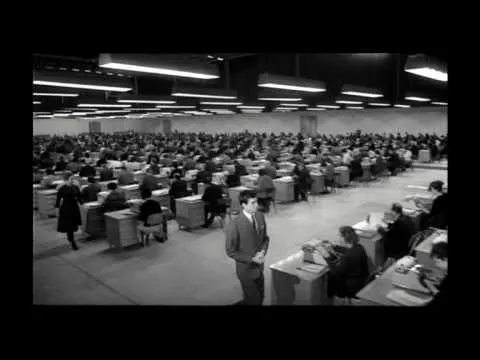
The film version of Kafka's book by Orson Welles is not a very faithful representation of the book.
Wells changed the order of the book's scenes in order to have a smoother distribution of the story, to be able to achieve the greatest narrative coherence and density in the script. He also changed some of the characters in the book (book lovers will notice that Jeanne Moreau's interpretation of Miss Burstner is less conservative than her presentation in the book).
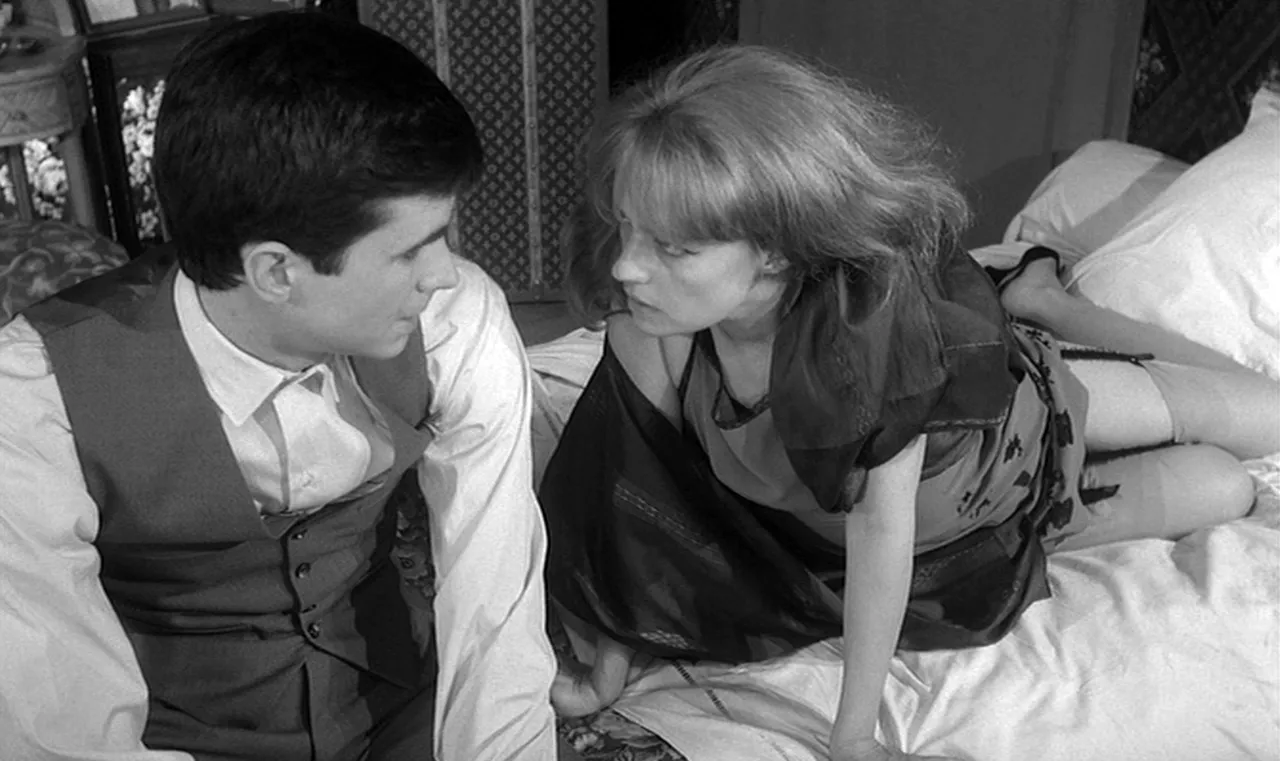
source
Certainly, the book's enthousiasts may be confounded by the very interpretation of the book by Wells, who transferred it from the metaphysical stress that pervaded Kafka's work to an "inability to adapt to a socio-political reality," as one one of the favorite film critics, Vassilis Rafailidis. The director transforms Joseph K. (alter ego of the writer?) into a logically irrational person who can not meet the demands of a changing society that is set to drown the person.
But even the most hesitant, the most formalistic fans of the book will surely recognize in this Welles cinematic performance his intelligence in his attempt to convey to us a profound, metaphysical novel about human nature.
Anthony Perkins, after the success of Psycho, accepts gladly the protagonist role in Welles' film (one of the few films that Welles had the absolute artistic freedom). And it seems to me that the role of the ever turbulent Josef K. is a great match for him. He gives with absolute naturalness this feeling of a bureaucrat who suddenly, without any substantial explanation, drowns in the gears of an irrational system.
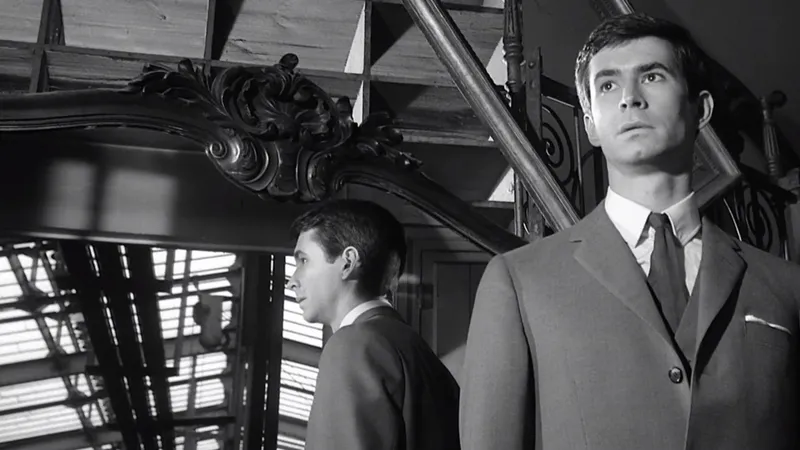
source
Wells loves the weird shots and the symbolism and they could not be absent from the movie. The scene of the courtroom, where after a lot of effort and search, our protagonist finds his case being tried is the unleashing of symbolism. Josef K. on his way meets the other accused, elderly, resigned to wait patiently for their turn and the statue of justice is covered so as not to see what is happening.
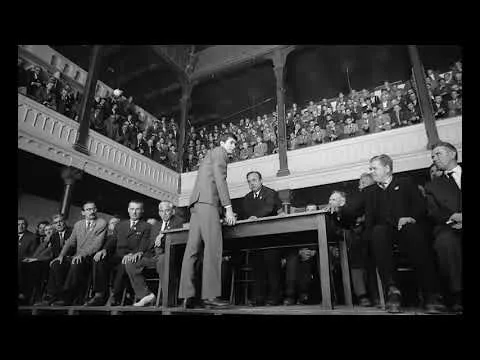
In this scene, Joseph K. comment the fate of the men that are accused with no real reason, but for the will of the auhtority
The small door of an attic room leads us to a huge room (does he make a hint to Alice in Wonderland?) full of the audience eagerly waiting for Joseph K. to apologize. And when he denies and stands against the illogical judicial system, the very door through which he entered, has become enormous to project the fear that the law causes to man.
This is one of my most favourite film stills of all time
These men are powerless and even the attorney (played by the same Orson Welles) can't save or maybe they don't want to. A man with power to acquit the innocent, but use it to flaunt his ego. And he is revengeful, when someone tries to object him or defies him. Especially, if he feels danger about the "objects" he owns, as he thinks of his beautiful assistant, Leni (Romy Schneider in another excellent part), he can be malicious.
Josef K. knows that he can't win. The scene in the church shows us the determination of a man who lost, but still holds his dignity through the end.
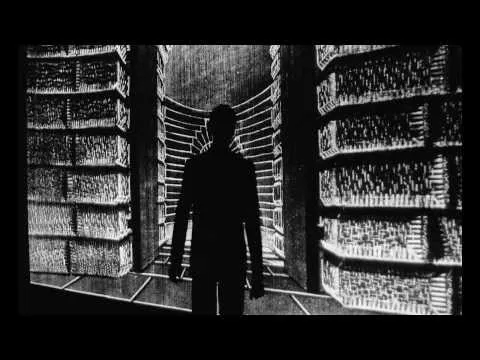
Josef K.: I don't pretend to be a martyr, no.
Hastler: Not even a victim of society?
Josef K.: I am a member of society.
Hastler: Do you think you can persuade the court that you're not responsible by reason of lunacy?
Josef K.: I think that's what the court wants me to believe. Yes, that's the conspiracy: to persuade us all that the whole world is crazy, formless, meaningless, absurd. That's the dirty game. So I've lost my case. What of it? You, you're losing too. It's all lost, lost. So what? Does that sentence the entire universe to lunacy?
source
Lady Justice is blinded again. She doesn't come for him, instead comes death.
source
This is a not a courtroom film in the narrow sense of the term. But it is a film about law and humanity and how easy it is to violate human law. The film has no lawyers to speak in court or searching for evidence to prove the innocence of the accused. Within two hours, in the black-and-white claustrophobic setting, Welles reminds us of the absurdity of the universe.
(And the need to fight against it!)
This is a post for the CinetvContest. You can read all about it here
Thank you for reading!
